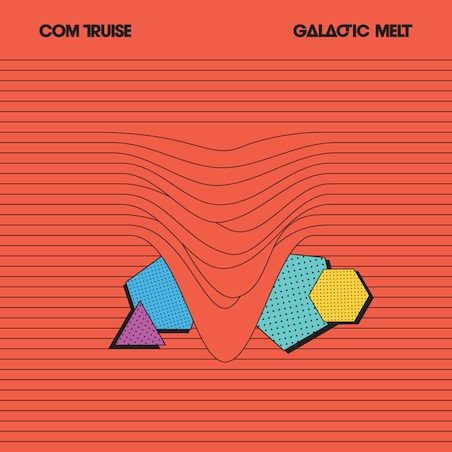It’s not unreasonable to suggest that we have more artists making “80s-style music” today than there were during the actual 1980s. Not that there’s anything inherently wrong with that, but has this interest in OMD-era electronics come at the expense of a distinctively modern aesthetic? Does 2011 have its own sound, or is it just I Love The 80s with reverb and sampling instead of Michael Ian Black’s pithy observations?
In a recent interview with Rhapsody, Seth Haley — dude behind Com Truise, in addition to a host of other aliases — says he is “not trying to recreate ’80s sounds” and “more interested in the production techniques and the sound of the sound.” Fair enough; after all, last year’s Cyanide Sisters EP was indeed awash in studio tinkering and EQ adjusting. “Slow Peels,” for instance, opened with a man saying, “Now I’m sure you all recognize this. This is called ‘hiss.’” Throughout the EP’s seven tracks (eight in this year’s re-release), synth lines weaved in and out of clarity, and an ever-present electronic bass line gave the music depth and solidity. Cyanide was a confident, if unremarkable, debut offering from an artist just dipping his toes in the ambient ocean. It was also very much indebted to its 80s influences.
So here comes his debut LP, Galactic Melt. If you were hoping that Haley had moved on from retro-electronic fetishism, song titles like “VHS Sex” and “Cathode Girls” will disappoint. And if you were hoping for more blissful sonics from the “admitted synth obsessive” (as it says in Com Truise’s last.fm biography), you might be in for a surprise.
It’s less obviously ambient and in some ways more in line with the drum-and-bass music with which Haley cut his teeth. The samples and sequences here are also more frantic and cut-up, not unlike those on VHS Head’s Trademark Ribbons of Gold from 2010. Whereas instrumental layers fused together to form a satisfying whole on Cyanide’s tracks, Haley now seems to enjoy highlighting his tracks’ layered incongruity. “Cathode Girls,” for instance, never gels the way you expect it to; the beat is fickle and restless, and the individual synth lines are less immediately complementary of each other. That former quality — the persistent percussion — is the biggest update of Com Truise’s sound. The beats are particularly ferocious on “Air Cal” and “Flightwave,” not content to hang in the background as they did on Cyanide. On album closer “Futureworld,” they pretty much take front and center; cymbals push their way past the pew-pewing synth stabs and give the song a sense of urgency we hadn’t heard from Haley’s work before.
But as for the melodies themselves, well, they’re catchy and fun but hardly different from their Cyanide predecessors. After a few tracks, the pounding-rhythm-and-floating-keyboards trick begins to grow stale, and despite a (relatively) scant 43-minute run time, Galactic Melt overstays its welcome. In fact, the album as a whole feels like a Hollywood sequel: enjoyable and worth experiencing, sure, but not entirely necessary. We get it: Com Truise still really loves the 80s. Why doesn’t he try to teach us something new next time?

